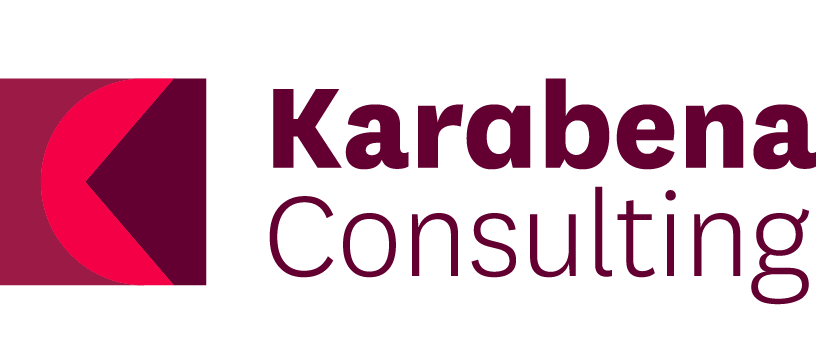Unlearning: The Hidden Work of Cultural Safety
Dr Sharon Pittaway
Senior Consultant
We’ve all done it, clicked through a cultural awareness module on autopilot at double speed, skimmed a few facts, maybe even jumped straight to the quiz. Job done, right? You’re now culturally aware.
Not quite.
If we’re serious about cultural safety, especially in systems that serve Aboriginal and Torres Strait Islander peoples, then we need to get serious about unlearning. Not just adding more information, but actively dismantling the assumptions and biases that shape how we see the world. It’s uncomfortable work, yet it’s essential.
Why unlearning matters
At Karabena Consulting, we don’t treat cultural safety training as a knowledge dump. We see it as a disruption. And unlearning sits at the heart of that.
Our Managing Director, Professor Kerry Arabena, who developed and delivered the First 1000 Days Australia course for many years, sees this often: people arrive looking for tools and tips. What they leave with, if they’re open to it, is a shift. A different understanding of their role, their worldview, and the systems they’re part of. That shift begins with unlearning.
Unlearning isn’t just discarding outdated facts. It’s questioning the lenses we’ve internalised, the filters that shape how we interpret history, relate to others, and define what’s ‘normal’. It’s noticing how whiteness dominates many systems and challenging inherited beliefs about authority, care, and competence. It means making space for other ways of knowing and being.
Discomfort and disorientation
For many, unlearning starts with a “disorienting dilemma.” A story about colonisation not taught in school. A realisation that professional training assumes your values are universal. The ground shifts. And suddenly, what you’ve always accepted doesn’t feel so certain.
For non-Indigenous people, this often involves unlearning colonial narratives that cast Aboriginal and Torres Strait Islander peoples as deficits or passive recipients. It means decentring whiteness, not as a gesture, but as a deliberate rebalancing of power and respect. It’s uncomfortable. But it’s also freeing.
Unlearning and professional identity
Much training still aims for ‘cultural competence’, as if culture is a skill you can master. The problem with that idea? It assumes there’s an endpoint. And it positions the learner as the expert.
Unlearning shifts the frame entirely.
What’s needed isn’t a script. It’s a stance: one of cultural humility. That means admitting what you don’t know. Listening without interrupting. Sharing power. Reflecting, constantly and deliberately, not just as individuals, but within institutions that have been built on inequality.
In education, health, justice, and social services, this has direct consequences for how we show up. We may need to unlearn the idea that being ‘the expert’ is our main value. We may need to step away from rigid professional norms that prevent real human connection. We may need to let go of methods that feel comfortable, but cause harm.
In doing so, we create space to engage differently: more honestly, more respectfully, and with greater accountability.
How we embed unlearning in training
This is why we design our courses the way we do. Senior Consultants Sharon and David both have teaching backgrounds and years of experience in curriculum design. When we began developing online versions of our courses, they didn’t just replicate content: they created space for reflection, challenge, and disruption.
We avoid the passive consumption model that corporate e-learning relies on. Instead, we invite participants to sit with complexity, reflect critically, and recognise that learning about cultural safety is not a linear journey. Our courses centre Aboriginal and Torres Strait Islander voices, and ask participants to let go of assumptions before taking in anything new.
This is not a checkbox exercise. It’s a reckoning with our histories, our professional responsibilities, and our identity.
Where to start
Unlearning takes time, but it has to start somewhere. A few practical commitments:
Stay with discomfort. Don’t rush to fix it. Ask what it’s telling you.
Practise self-reflection. Pay attention to your gut responses.
Challenge group labels. See people as individuals.
Decentre your own perspective. Assume you are not the expert on someone else’s experience.
Listen, don’t perform. Let other people’s realities shift yours.
Unlearning isn’t a threat to your professionalism. It’s the foundation of ethical, culturally safe practice.
Final thought
If you work in health, education, justice, or social services, cultural safety is not optional. But it’s also not something you acquire. It’s something you build, through reflection, relationships, and unlearning.
So ask yourself: What belief, habit, or assumption might you need to let go of in order to practise cultural humility, not just cultural competence?
Let that question be the starting point for your unlearning.
If you’re ready to move beyond checkbox training and engage in transformative learning, keep an eye out for our upcoming online and in-person courses. Built on years of experience delivering First 1000 Days Australia and grounded in Aboriginal-led approaches, our training is designed to challenge, support, and shift.
To learn more, visit the training section of our website: www.karabena.com/courses.

